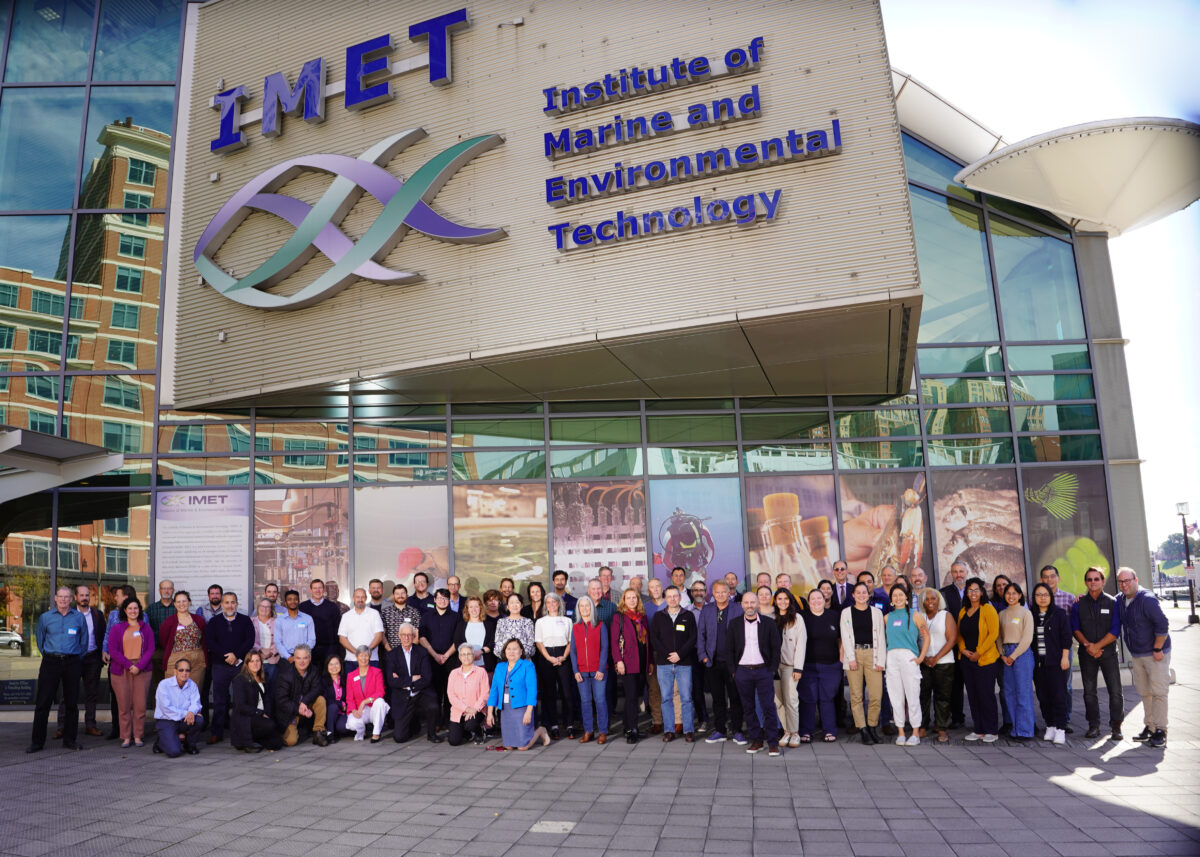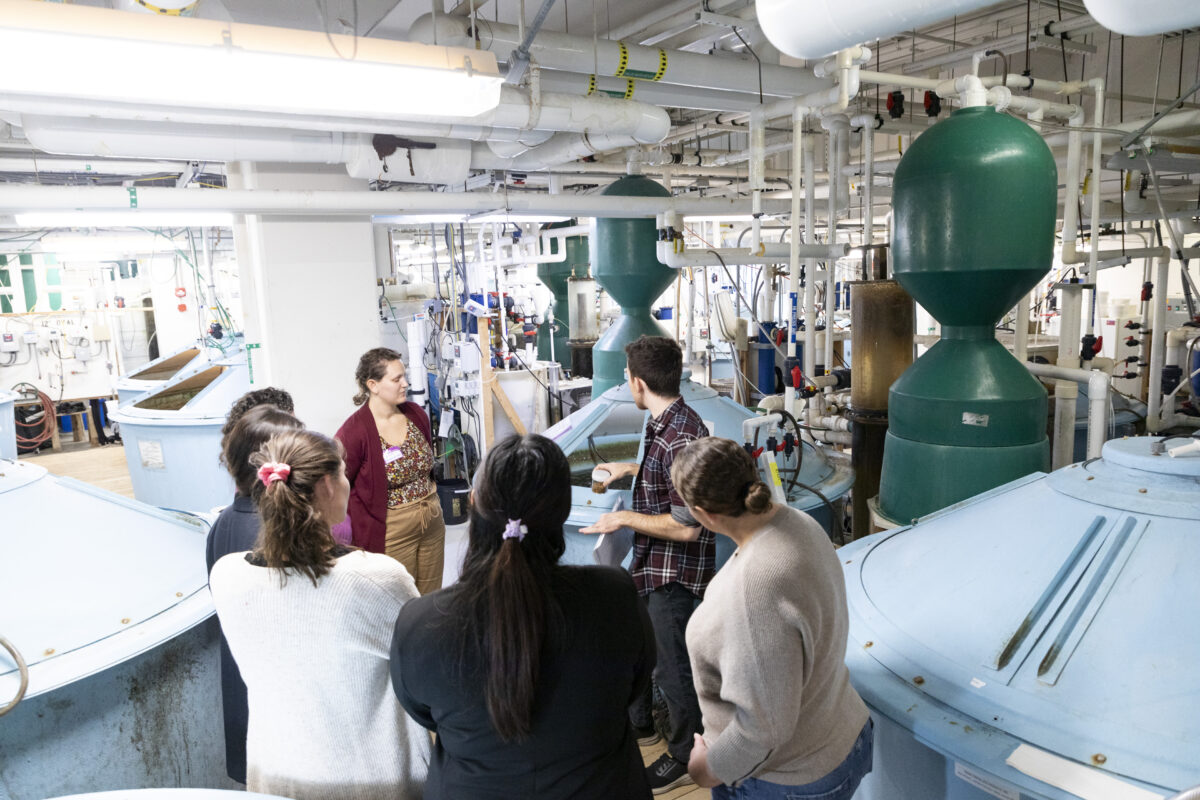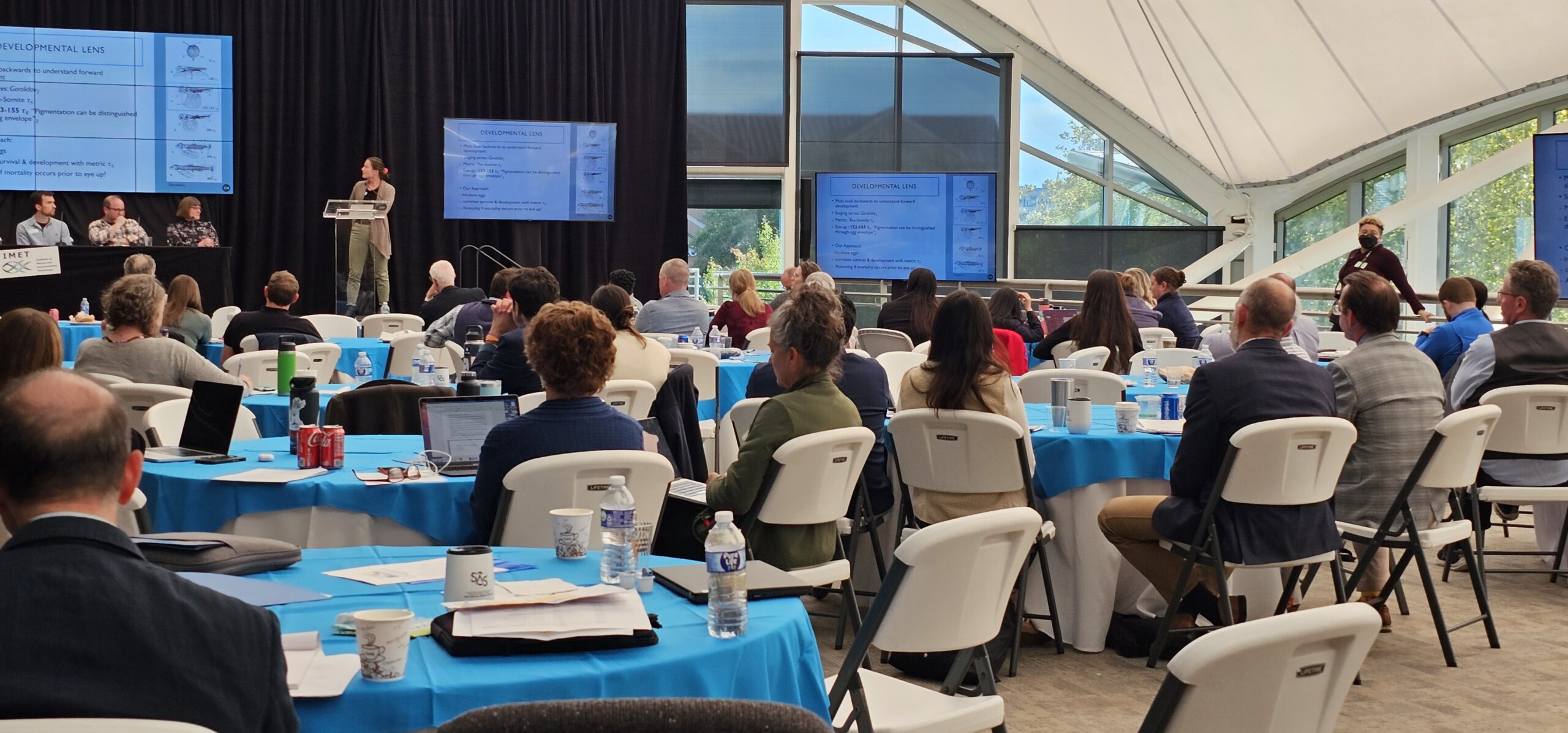More than 110 academic researchers, industry pros, government officials and educators met at the Institute of Marine and Environmental Technology (IMET) for the second annual Sustainable Aquaculture Systems Supporting Atlantic Salmon (SAS2) conference in October. The conference’s nine panel discussions (with more than 50 panelists), local field trips and tours, and social events gave stakeholders the opportunity to share progress and address remaining challenges to move the aquaculture industry forward.
Yonathan Zohar, professor of marine biotechnology at UMBC and IMET, leads the SAS2 consortium, which includes 32 co-investigators, 12 research institutions, and 11 industry partners, from around the U.S. and internationally.
Salmon is consumed more than any other fish in the U.S., but over 90 percent of it is imported at a value of $3.8 billion annually, Zohar shared in introductory remarks. People across sectors are interested in reducing this trade deficit and improving environmental sustainability of salmon aquaculture by eliminating the carbon footprint associated with transporting salmon from overseas. As a result, domestic salmon aquaculture is experiencing an investment boom, Zohar says. The investment is particularly strong for land-based aquaculture, which Zohar and colleagues are advancing at IMET’s Aquaculture Research Center (ARC).
“This is a stakeholder-driven program,” Zohar says. “Industry and academia are engaged in genuine brainstorming towards enabling salmon aquaculture in the U.S. to be a success story.”
University System of Maryland Chancellor Jay Perman shared that the SAS2 team’s efforts, from biotechnology to market strategies to workforce development and education, “are poised to change the face of food scarcity and food production the world over.”

Research for the public good
The work at IMET has been critical to move the industry forward worldwide. The SAS2 initiative, awarded $10 million by the U.S. Department of Agriculture in 2021, builds on the Recirculating Aquaculture Salmon Network, also led by Zohar and funded by the National Oceanic and Atmospheric Administration’s National Sea Grant Office.
IMET, and the ARC in particular, are “a showcase of our best ideas, ideas that promise solutions to so many essential challenges—food security, environmental sustainability, economic resilience,” Perman shared. The SAS2 consortium is “research for the public good,” Perman added. “That’s our mission and this project is emblematic of that.”
Session topics at the conference included scientific and engineering challenges like waste remediation, water reuse, and managing the salmon life cycle in captivity. Other sessions discussed market research for salmon produced on land and examples of education programs that increase awareness of aquaculture careers.
Attendees also traveled to The Conservation Fund Freshwater Institute in West Virginia to see collaborative SAS2 research, visited Baltimore City Schools that incorporate aquaculture into the curriculum, toured the ARC, and heard from graduate students contributing to the research arm of SAS2.
“SAS2 is an amazing accomplishment—the best example of public-private partnership to solve problems for industry,” shares Steve Summerfelt, a conference panelist and the chief science officer at Superior Fresh, which raises land-based salmon and recycles the nutrient-rich wastewater to grow greens. “SAS2 is providing relevant and groundbreaking research with strong tech transfer to help land-based salmon farmers.”

Enabling aquaculture innovation
Overall, the conference emphasized aquaculture’s important and growing role in worldwide food production.
“Land-based, sustainable production of seafood is critically important technology to meet the rapidly growing need for healthy seafood as a source of protein in diets worldwide,” Russell Hill, director of IMET, said. “A land-based approach has huge advantages for minimizing pollution in the coastal environment and taking pressure off wild fish populations—and all of this can be done through this resilient technology that’s also adaptable in the face of a changing planet.”
By bringing together people from across industries, the event created opportunities that will enable more breakthroughs.
“The lively engagement and productive brainstorming of all relevant sectors led to several innovative ideas and collaborations which will contribute in the short term to making Atlantic salmon farming in the U.S. and globally more environmentally responsible and economically feasible” concluded Zohar. “Everyone left inspired and excited about the opportunities being created by the SAS2 program for innovative and sustainable aquaculture.”
Tags: CNMS, MarineBiotech, Research

